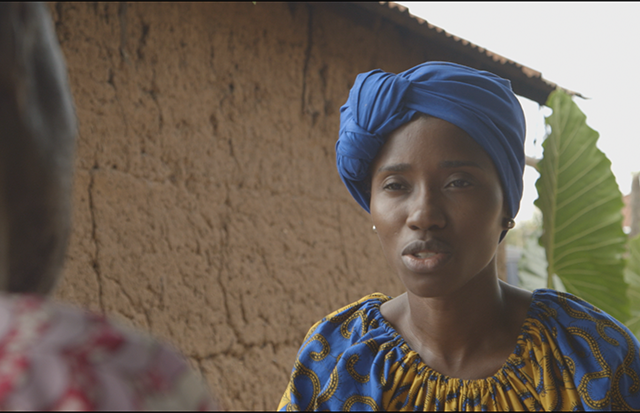A new project from On Our Radar investigating trokosi, a traditional practice in Togo and Ghana that forces women and girls into ritual servitude, is being funded through the Innovation in Development Reporting Grant Programme (IDR) from the European Journalism Centre.
Paul Myles, project lead on Wives of the Gods and editorial manager of On Our Radar, explained that the documentary will see Brigitte Perenyi, a former trokosi slave, return to her birthplace in rural Togo to explore the tensions between the fight for gender equality and the right to practice traditional rituals.
“We wanted Brigitte to be a narrator of her own story, rather than the subject of our documentary,” Myles told Journalism.co.uk. He noted that Perenyi was unique in telling the story as someone that had lived through trokosi, before being adopted by an American family and going on to study human rights.
“At the start of the project, we spent days brainstorming with Brigitte, helping her think about all the different chapters of her life, which angles she wanted to explore on each issue, and how she wanted us to treat them – there were lots of post-its involved and ideas thrown around.

“These workshops allowed us to have a clear idea how she, as the narrator, wanted to tell the story, which informed which people we needed to speak to when we were filming. We were able to plan our filming off the back of that."
Non-profit communications agency On Our Radar had been approached by Angela Robson at Pearl Works Productions to partner with her on a project on the subject of trokosi, which sees young virgins taken away to work for a shrine priest – a tradition believed to redeem a family member who has committed a crime.
Wives of the Gods marks the third project that Myles has received IDR funding for, following Back in Touch, which explored the impact of the Ebola crisis on community life in Sierra Leone, and Sewing Societies, which told stories of how female garment industry workers contribute to the economic and social stability of Bangladesh.
In Wives of the Gods, Myles filmed Perenyi over two and a half weeks, capturing her meetings with other trokosi girls, traditional leaders who defend the practice, and the return to the family who ‘gave her away’.
We used our experience as journalists to guide her to think about the type of questions to ask, which would help her explore the issues in more depthPaul Myles, On Our Radar
“Each day after filming, we would sit with her to script her reaction to the day's events, working with her to narrate the story in her own words – she was driving the content and we used our experience as journalists to guide her to think about the type of questions to ask, which would help her explore the issues in more depth," he said.
“As a journalist and filmmaker, I found that we got a certain access and authenticity that we wouldn’t have got on our own with Brigitte as just a character in the documentary.
"She had gone through it and wanted to understand more about the practice she had experienced, not challenge it, and we saw the interviewees wanting to engage in a genuine dialogue because of the position she’s come from."
Myles hopes that the project will shape as a longform documentary and a series of radio pieces with BBC Africa, so people in Ghana and Togo, where the practice exists, can learn more about it and become part of the conversation.
“Brigitte plans to use this documentary as a platform, to go on local media and talk at events, to use her own story to get the discussion going on this small and little-known issue,” Myles added.
“This project explores the wider issue of how we can tackle harmful traditional practices whilst respecting the role of local tradition."
Free daily newsletter
If you like our news and feature articles, you can sign up to receive our free daily (Mon-Fri) email newsletter (mobile friendly).










